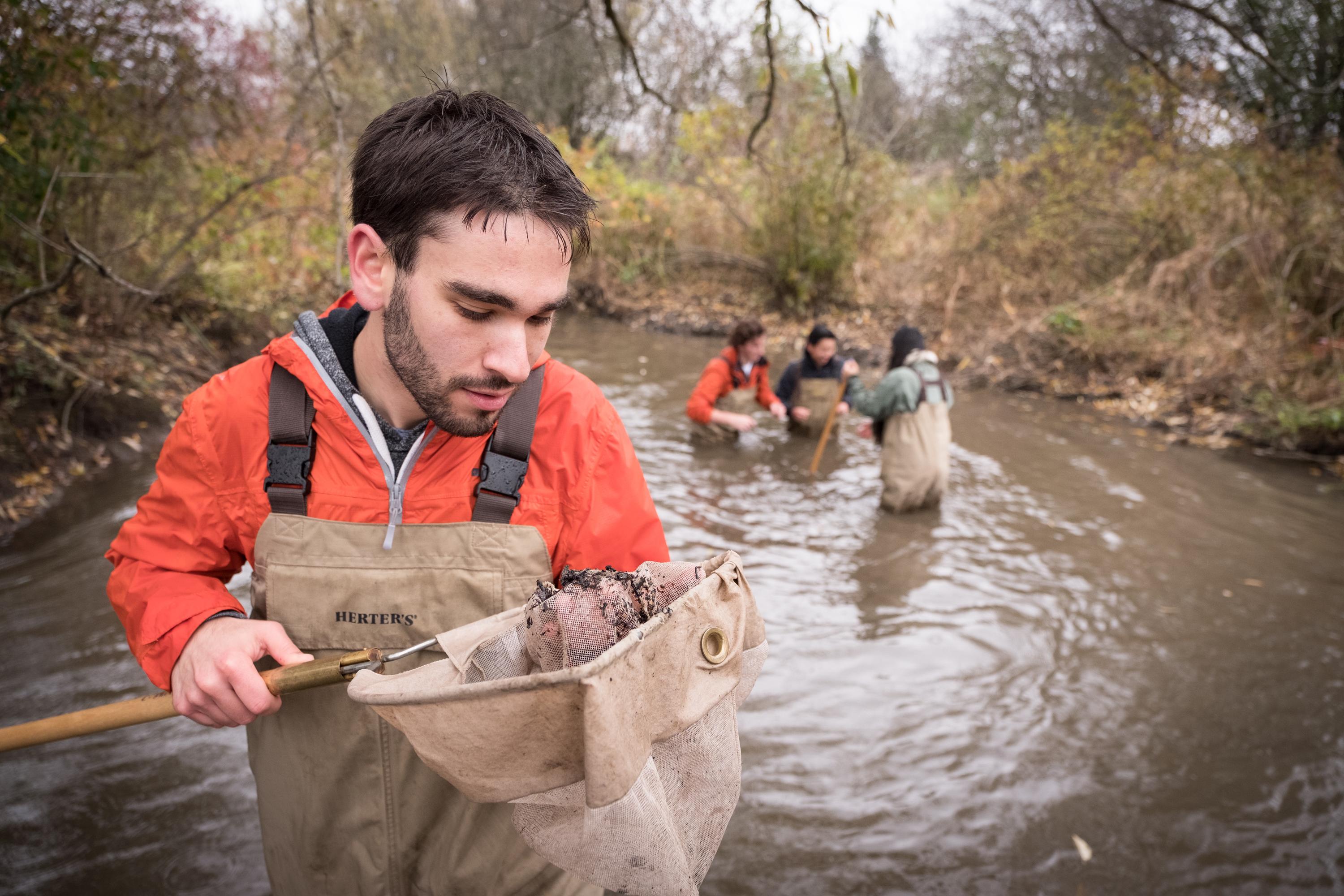The study of environmental systems, including their physical, biological, and chemical properties.

Jordan examines his D-net, after kicking up sediment in Laurel Creek, looking for insects, fish, and other creatures that live under the water's surface.
A good planet is hard to find.
Explore earth processes as they relate to human activities to better understand the impacts of human (and natural) influences on environmental sustainability, biodiversity, and hydrology/hydrogeology.
Environmental sciences applies geologic knowledge to address and solve problems related to the more than seven billion humans occupying the Earth. Topics you'll learn include climate change, groundwater flow and contamination, environmental impacts of pollution, responsible extraction of earth resources, waste disposal, and human engineering of earth processes. Enjoy examining the interactions between and within the Earth's four spheres that include both living and non-living components.
Train with cutting-edge professors and the latest technologies, at Canada's most innovative university, to directly address challenges facing humanity today and future generations.
Environmental Sciences Ambassadors - We'd love to meet you!
Find out more about life as a Waterloo Environmental Sciences student. Come in for a tour or to one of our open houses and you might even meet us in person!
This major is available in the co-op and regular stream of study
Specializations
Ecology
Address ecological sustainability and biodiversity while learning about the fundamental science of life on Earth. Delve into environmental disciplines that examine the history, interaction, and possible future of Earth’s species and ecosystems.
Geoscience
Focus on the interactions among the geosphere, hydrosphere, atmosphere, and biosphere, as well as the human activities and encompass the complex and dynamic earth system. Study topics such as surface and subsurface contamination, urbanization, impacts of agriculture, and mining.
Water Science
Investigate the unique properties of water, the distribution and movement of fresh and salt water above, on, and within the Earth, and the quality and quantity of water that humans depend upon to survive and thrive on this planet.
HIT THE GROUND RUNNING
Students who graduate with an Environmental Sciences degree (in the Geosciences specialization) from the University of Waterloo automatically qualify to become a P.GEO, through The Professional Geoscientists of Ontario, upon graduation.
Becoming a Professional Geoscientist means you are qualified and licensed to sign proposals and designs into action.
SOME OF THE SKILLS ATTAINED WITHIN THIS MAJOR
- Critical thinking
- Problem solving
- Communication
- Fieldwork capabilities, including ground water and surface water sampling, as well as geological mapping
Explore other environment-related programs
Learn More
- Apply directly via the Environmental Sciences entry program on the Ontario Universities' Application Centre (OUAC).
- Learn about our minors available to Faculty of Science students, including our Bioinformatics Option.
- Learn more about co-op.
- See more in the science careers list.
- Trying to understand the difference between Environmental Sciences (Faculty of Science) and Environment and Resource Studies (Faculty of Environment)? See how they compare.